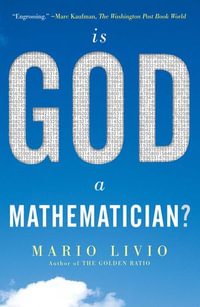
eTEXT
Applications of Conceptual Spaces
The Case for Geometric Knowledge Representation
By: Frank Zenker (Editor), Peter Gärdenfors (Editor)
eText | 16 April 2015
At a Glance
eText
$159.01
or
Instant online reading in your Booktopia eTextbook Library *
Read online on
Desktop
Tablet
Mobile
Not downloadable to your eReader or an app
Why choose an eTextbook?
Instant Access *
Purchase and read your book immediately
Read Aloud
Listen and follow along as Bookshelf reads to you
Study Tools
Built-in study tools like highlights and more
* eTextbooks are not downloadable to your eReader or an app and can be accessed via web browsers only. You must be connected to the internet and have no technical issues with your device or browser that could prevent the eTextbook from operating.
ISBN: 9783319150215
ISBN-10: 3319150219
Series: Synthese Library : Book 359
Published: 16th April 2015
Format: PDF
Language: English
Audience: General Adult
Publisher: Springer Nature
Country of Publication: US
Volume Number: 359























